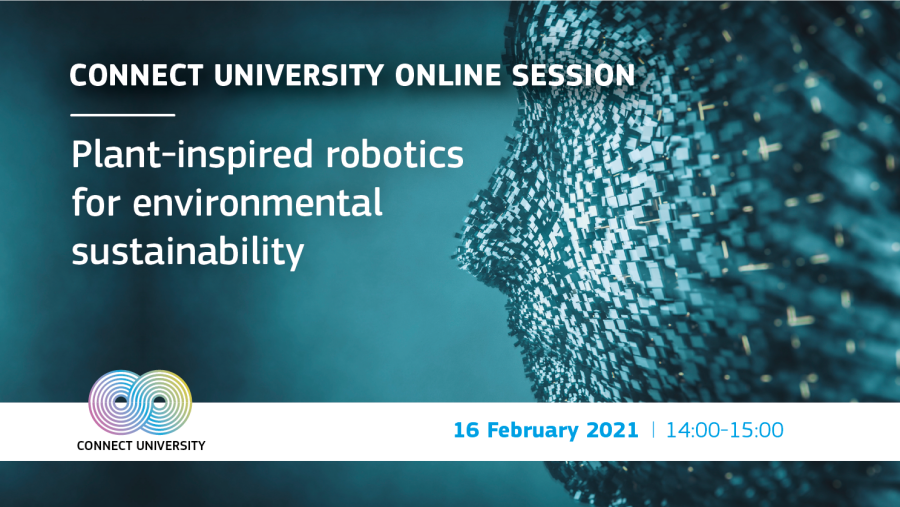Meeting the global challenges of climate change and environmental safeguard represents one of the most important frontiers for science and sustainable technologies.Understanding, monitoring, restoring and preserving the equilibrium of natural ecosystems is necessary for the conservation of biodiversity and healthiness of species, including the humans one.
Plants are at the core of our natural ecosystem, and taking inspiration from them is a new, promising, trend in robotics for the design of systems that can better integrate and adapt to unstructured and challenging environments. Plants are in fact masters for systems abilities such as growing, morphing, perception-based behaviour, climbing, versatile gripping, muscle-free movement, anchoring, adhesion, which are of paramount interest in robotics.
With this vision, this CONNECT University session showed an overview of robotics systems inspired by plants for addressing environmental challenges, including artificial roots for soil monitoring, growing robots inspired by climbing plants for infrastructures’ explorations, biohybrid energy harvesting systems, and self-deployable, biodegradable seed-like soft robots for environmental monitoring.
A new wave of environmentally responsible robots is envisioned, by merging bioinspired soft robotics, material science, nanocomposite technologies, and environmental science.These “green robots” will be developed to better integrate into the natural ecosystem and react accordingly to changes by varying their structural, physiological or behavioural features, to operate environmentally friendly in natural scenarios and support the challenge of biodiversity and climate protection.
Speaker:
Barbara Mazzolai is Director of the Center for Micro-BioRobotics (CMBR) of the Istituto Italiano di Tecnologia (IIT), and Principal Investigator of the Bioinspired Soft Robotics Research Line. Her research activity is primary in the fields of biologically-inspired robotics and soft robotics, combining biology and engineering for advancing technological innovation and scientific knowledge. She graduated (MSc) in Biology (with Honours) at the University of Pisa, Italy, and received the Ph.D. in Microsystem Engineering from the University of Rome Tor Vergata. She was Assistant Professor in Biomedical Engineering at SSSA from 1999 to 2009. From November 2009 to February 2011 she was Team Leader at the CMBR. She was Deputy Director for the Supervision and Organization of the IIT Centers Network from July 2012 to 2017. From January to July 2017 she was Visiting Faculty at Aerial Robotics Lab, Department of Aeronautics, of Imperial College of London. She is member of the Scientific Advisory Board of the Max Planck Institute for Intelligent Systems (Tübingen and Stuttgart, Germany, since 2016) and member of the Advisory Committee of the Cluster on Living Adaptive and Energy-autonomous Materials Systems - livMatS (Freiburg, Germany, since 2019). From 2012 to 2015 she was the Coordinator of the EU-funded FET-Open PLANTOID project (FP7-293431), and currently she is the Coordinator of the EU-funded FET-Proactive GrowBot Project (H2020- 824074). She is author and co-author of more than 270 papers appeared in international journals, books, and conference proceedings, and in 2019, she has published her book “La Natura Geniale” (ed. Longanesi).

- Za objavu komentara morate se prijaviti

